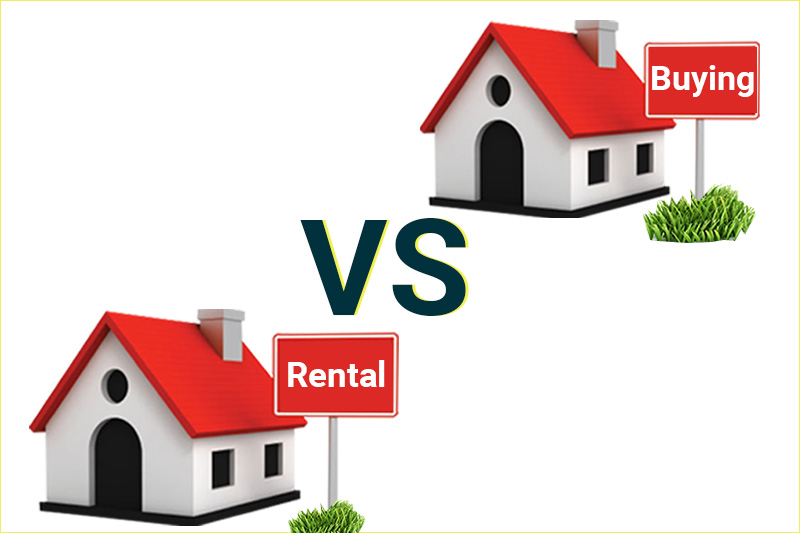
In the game of life, one of the biggest questions we face is “to rent or to buy?” This question is not just about bricks and mortar; it’s about our lifestyles, our futures, and oftentimes, our identities. In the sunburnt country of Australia, this query carries extra weight. With property markets as diverse as its landscapes, Australia presents a unique scenario that leaves many puzzled.
To clear the clouds of confusion, let’s dive deep into the pros and cons of renting vs buying in Australia in 2024.
Short Summary
- Comparing rental vs buying in 2023 requires an assessment of financial resources, lifestyle, and future plans.
- Benefits of renting include flexibility, mobility, and lower upfront/maintenance costs. Whereas buying offers equity-building potential, increased control & stability.
- First-time buyers/renters should research the market & seek professional guidance to find a suitable housing solution.
The Rental Market in Australia
 The Australian rental market can be likened to a roller coaster ride — filled with ups and downs, twists and turns. It’s no secret that the current state is less than favorable for prospective tenants, with the scales of supply and demand often tipping toward the landlords. The monthly rent cost is a key factor that swings the pendulum in the ‘rent or buy’ deliberation.
The Australian rental market can be likened to a roller coaster ride — filled with ups and downs, twists and turns. It’s no secret that the current state is less than favorable for prospective tenants, with the scales of supply and demand often tipping toward the landlords. The monthly rent cost is a key factor that swings the pendulum in the ‘rent or buy’ deliberation.
Despite the challenges, renting can be an advantageous choice, especially when your housing needs are as fluid as water.
Rental demand and availability
Australia’s rental landscape is painted by a palette of factors, including population growth, economic conditions, and housing supply. The canvas of rental demand and availability is constantly changing, influenced by these dynamic elements. Renting offers a golden ticket to live in desirable areas that might be out of reach if purchasing.
But just as every rose has its thorns, renting comes with its share of thorns, such as limited control over the living space, the dreaded ‘dead money’ syndrome, and the burden of monthly rental payments.
Factors affecting rental prices
When it comes to rental prices, three main factors call the shots — location, property type, and prevailing market conditions. A penthouse in Sydney will naturally command a higher rent than a studio apartment in a less populated city. While renters enjoy the benefit of avoiding maintenance, council rates, and possibly body corporate fees, they also need to be prepared for long-term increases in rental prices that typically align with the increasing values of properties.
Renters should also be aware of the potential for rental prices to be affected by external factors such as weather.
The Property Market in Australia
 Transitioning from the rental market, let’s venture into the realm of property ownership. The Australian property market, much like its rental counterpart, is a mix of varying dynamics. The market has cooled from its peak, yet housing affordability continues to be a challenge for many, especially first-home buyers.
Transitioning from the rental market, let’s venture into the realm of property ownership. The Australian property market, much like its rental counterpart, is a mix of varying dynamics. The market has cooled from its peak, yet housing affordability continues to be a challenge for many, especially first-home buyers.
The fear of missing out has now been replaced with the fear of buying prematurely, thanks to each Reserve Bank interest rate increase that nibbles away at the buyers’ borrowing capacity, making them more cautious about interest rates.
Property value trends
The property market is a dancing flame, constantly flickering with the winds of economic conditions, supply and demand, and government policies. The performance of residential property in Australia over the past decade has been a compelling narrative of growth and resilience. The annual growth rate of median house prices stands at a robust 6.8%, underscoring the upward trajectory of property values.
However, it’s prudent to remember that the market is cyclical, and what goes up can also come down.
Factors affecting property values
The value of a property is a result of a complex interplay of factors. The location of a property can significantly influence its price — whether it is in a burgeoning suburb, close to amenities, or in a flood-prone area. The type of property also plays a key role, with standalone houses generally commanding higher prices than apartments.
Market conditions, driven by economic trends, population growth, and local infrastructure, also have a say in determining property values. These factors together contribute to the ebbs and flows in the property market.
Pros of Renting a Property
 Venturing into the comparison terrain, let’s begin by exploring the advantages of renting a property in Australia. Renting is like riding a bicycle — it offers flexibility, mobility, and is relatively light on the wallet. For those who crave novelty or find themselves regularly on the move due to work or personal reasons, renting could be a perfect fit.
Venturing into the comparison terrain, let’s begin by exploring the advantages of renting a property in Australia. Renting is like riding a bicycle — it offers flexibility, mobility, and is relatively light on the wallet. For those who crave novelty or find themselves regularly on the move due to work or personal reasons, renting could be a perfect fit.
The cost of renting is often lower than buying, and it’s easier to move.
Flexibility and mobility
Renting a property can be as liberating as a bird in flight. It offers the flexibility to spread your wings and explore new locations without the weight of property ownership. If your job requires you to be mobile or if you enjoy experiencing various neighborhoods, renting allows you to:
- Pack up and relocate with relative ease
- Avoid the responsibilities and costs of property maintenance and repairs
- Test out different neighborhoods before committing to buying a home
- Have the freedom to move to a new city or country without the hassle of selling a property
Renting provides a sense of freedom and flexibility that can be appealing to many individuals.
It serves as a convenient option for those who value flexibility and mobility in their life.
Lower upfront and maintenance costs
If buying a home is like running a marathon, renting is akin to a sprint. The upfront cost associated with renting is significantly lower than that of buying a home, making it an attractive option for many. Additionally, as a renter, you have the luxury of not having to worry about maintenance and repair costs. From faulty plumbing to a leaky roof, the landlord rolls up their sleeves (or opens their wallet), keeping your expenses to a minimum.
Cons of Renting a Property
 Much like a coin, renting too has a flip side. While it offers several advantages, the cons of renting a property in Australia cannot be overlooked. Some of the disadvantages of renting include:
Much like a coin, renting too has a flip side. While it offers several advantages, the cons of renting a property in Australia cannot be overlooked. Some of the disadvantages of renting include:
- Lack of ownership and investment potential
- Limited control over the living space
- Restrictions on making changes or renovations
- Potential for rent increases
- Dependence on the landlord for repairs and maintenance
Renting may not be the right choice for everyone, and it’s important to consider these factors before making a decision.
Lack of ownership and investment potential
Renting a rental property is akin to staying in a hotel. You enjoy the amenities, but the property isn’t yours. Your monthly rental payments do not contribute to building equity or wealth. They go into the landlord’s pocket, providing them with a steady income stream, but offering you no ownership or investment potential.
This lack of financial growth is often referred to as ‘dead money’.
Limited control over living space
When you’re renting a property, your control over the living space is often limited. You might be restricted from making any significant changes to the property or personalizing it to your taste. Besides, there’s always the uncertainty of the landlord deciding to sell the property or not renewing the lease, which could necessitate an unexpected move.
This can be a difficult situation to be in, especially if you’re looking for a job.
Pros of Buying a Property
 Now, let’s shift our focus to the other side of the spectrum — buying a property. Purchasing a property in Australia comes with a host of advantages such as building equity and wealth, gaining greater control and stability, and the potential for increased property value.
Now, let’s shift our focus to the other side of the spectrum — buying a property. Purchasing a property in Australia comes with a host of advantages such as building equity and wealth, gaining greater control and stability, and the potential for increased property value.
These advantages can be a great incentive for those looking to invest in an investment property. However, it is not.
Building equity and wealth
Buying a property is like planting a seed — it has the potential to grow into a large tree over time. As you continue to make your mortgage payments, you build equity in your home. This equity can be a powerful wealth-building tool, providing you with a substantial financial resource through property investment.
Furthermore, as property prices rise over time, your home or investment property could appreciate in value, leading to potential capital growth and investment opportunities.
Increased control and stability
Home ownership offers several advantages in your own home:
- You have the control to renovate and make changes to the property to suit your tastes and needs.
- Owning a home offers a sense of stability and security that renting can’t match.
- You don’t have to worry about the landlord deciding to sell or not renewing your lease.
You can put down roots, become part of a community, and plan for the future with confidence.
Cons of Buying a Property
 While buying a property comes with its set of advantages, it’s essential to weigh the cons as well. From high upfront and ongoing costs to potential risks and market fluctuations, there are several factors to consider before you decide to buy a property in Australia.
While buying a property comes with its set of advantages, it’s essential to weigh the cons as well. From high upfront and ongoing costs to potential risks and market fluctuations, there are several factors to consider before you decide to buy a property in Australia.
It’s important to understand the costs associated with buying a property, such as stamps.
High upfront and ongoing costs
Buying a property is a significant financial commitment that comes with high upfront and ongoing costs. Some of the financial responsibilities of owning a property include:
- The initial deposit
- Stamp duty
- Ongoing mortgage repayments
- Maintenance costs
These costs can be substantial and should be carefully considered before purchasing a property.
It’s crucial to have a clear understanding of these costs and to ensure that you are financially prepared to handle them.
Potential risks and market fluctuations
Like any major investment, buying a property comes with its share of risks. Property values can fluctuate due to various factors, and there’s no guarantee that your property’s value will increase over time. If the value of your home falls below the amount you borrowed, you could find yourself in a negative equity situation, making it difficult to manage your home loan repayments.
It’s important to be aware of these potential risks and to be prepared for market fluctuations. Doing your research and understanding the market can help you make an informed decision and reduce the risk of:
- losing money
- making poor investment choices
- experiencing financial stress
- facing unexpected challenges
- missing out on opportunities
By being proactive and staying informed, you can navigate the market with confidence.
Find out your borrow capacity
Assessing Your Personal Situation
 Your personal situation plays a pivotal role in deciding whether to rent or buy. It’s important to assess your financial readiness and consider your lifestyle and future plans before making a decision.
Your personal situation plays a pivotal role in deciding whether to rent or buy. It’s important to assess your financial readiness and consider your lifestyle and future plans before making a decision.
Remember, what works for one person may not necessarily work for another.
Financial readiness
Your financial readiness is a key factor to consider when deciding to rent or buy. Take a close look at your savings, income, and credit history. Are you financially prepared to handle the costs of buying a home?
Or would renting be a more financially prudent option for you? These are important questions to ask yourself.
Lifestyle and future plans
Your lifestyle and future plans should also play a key role in your decision to rent or buy. Here are some factors to consider.
- Are you planning to settle down in one place, or do you prefer the flexibility of being able to move easily?
- What are your career goals? Will you need to relocate for work?
- Are you planning to start a family? Will you need a larger space in the future?
Your answers to these questions can help you determine whether renting or buying is the right choice for you.
Renting or buying is a big decision, and it’s important to consider all the factors before making a decision.
Rent vs Buy Calculator Tools
 To make your decision-making process easier, there are several rent vs buy calculator tools available. These tools help you compare the costs and benefits of renting and buying, taking into account various factors such as:
To make your decision-making process easier, there are several rent vs buy calculator tools available. These tools help you compare the costs and benefits of renting and buying, taking into account various factors such as:
- Monthly rent
- Property purchase price
- Home loan amount
- Interest rate
By inputting your specific data, you can get a clearer picture of which option might be more cost-effective for you.
Using these tools can help you make an informed decision about whether to rent or buy. They can.
Tips for First-Time Home Buyers and Renters
Whether you’re a first-time home buyer or a renter, it’s important to do your homework. Research the market, understand your financial options, and seek professional guidance if necessary. Remember, purchasing property is not merely about finding a comfortable place to live; it’s about making a sound investment for the future.
On the other hand, renting can provide flexibility and freedom from maintenance costs and property market fluctuations. Make sure to weigh the pros and cons carefully before making a decision.
Summary
The choice between renting and buying is a personal one, influenced by your financial situation, lifestyle, and future plans. While renting offers flexibility and lower upfront costs, it comes with limited control and no investment potential. Buying a property, on the other hand, allows for equity building and greater control, but it involves high upfront costs and potential risks. Ultimately, the decision should be based on a careful consideration of your personal situation and a thorough understanding of the pros and cons of each option.
Frequently Asked Questions

Is it better for me to rent or buy?
To identify capital growth suburbs, look for an influx of buyers creating a high demand for a low number of properties on the market with sellers preferring to go to auction.
This is a sign that the suburb is in high demand and is likely to experience capital growth.
Is it better to rent or buy a house in Australia in 2023?
Given the continuing rise of property prices in Australia, renting may be the more affordable option in 2023.
With the cost of buying a home becoming increasingly prohibitive, more and more people are turning to renting as a more viable option. This is especially true in cities where the cost of living is high.
What are some of the advantages of renting a property?
Renting a property offers the flexibility to move quickly, mobility to easily relocate, and lower upfront costs when compared to owning. It can be an ideal choice if you want to avoid the responsibility of owning a home.
What are the benefits of buying a property?
Buying a property provides you with equity, control, stability, and security – all great benefits to reap long-term rewards.
It can be a great investment, allowing you to build wealth and create a secure financial future. You can also use it as a source of income, either by renting it out or by taking out a loan against it.
What are the high upfront costs associated with buying a property?
The high upfront costs associated with buying a property include the deposit, stamp duty and potential lenders mortgage insurance.













